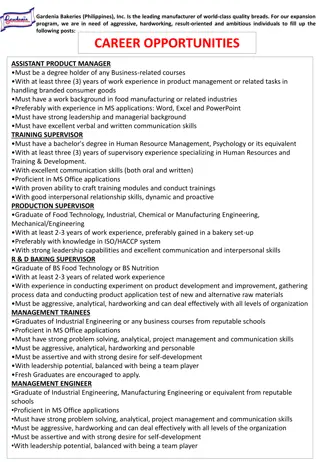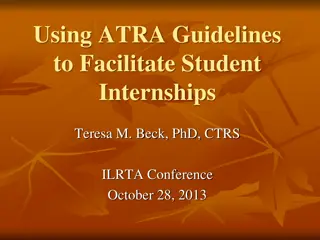
Challenges Faced by PhD Students: Mental Health and Academic Struggles
Exploring the mental health challenges and academic pressures experienced by PhD students, this content sheds light on the high levels of stress, work demands, and work-life conflicts that contribute to issues such as depression. Factors like lack of confidence, poor supervisor support, and unrealistic expectations also impact students' well-being and research progress.
Download Presentation

Please find below an Image/Link to download the presentation.
The content on the website is provided AS IS for your information and personal use only. It may not be sold, licensed, or shared on other websites without obtaining consent from the author. If you encounter any issues during the download, it is possible that the publisher has removed the file from their server.
You are allowed to download the files provided on this website for personal or commercial use, subject to the condition that they are used lawfully. All files are the property of their respective owners.
The content on the website is provided AS IS for your information and personal use only. It may not be sold, licensed, or shared on other websites without obtaining consent from the author.
E N D
Presentation Transcript
Seligmans PhD student Or: how to break your uppity minion
How could it ever go wrong? PhD students are among the best and brightest! Highly motivated! Intrinsic love of science! Extrinsic essential start of career! Independent workers! They get years to spend on interesting research! They get support from experts in their fields! And yet...
How could it ever go wrong? It doesn t seem that idyllic. Dropout levels around 30% (Stubb et al., 2012; THE, 2013). Rising attention to serious problems experienced by PhD students. E.g., Evans et al. (2018). Evidence for a mental health crisis in graduate education. Nature Biotechnology 36(3), 282 284. Guthrie et al. (2017). Understanding mental health in the research environment. Rand Corporation. Levecque K, et al. (2017). Work organization and mental health problems in PhD students. Res Policy 46(4):868 879. Hargreaves, C. E. et al. (2014). Re-evaluating doctoral researchers well-being: what has changed in five years? Imperial College London.
Guthrie et al. (2017) Fifty-one per cent of the PhD students reported least two symptoms on the GHQ-12 (GHQ2+; indicative of psychological distress), 40 per cent reported at least three symptoms (GHQ3+), and 32 per cent experienced four or more (GHQ4+) and were considered to be at risk of having or developing a common psychiatric disorder . (Levecque et al., 2017)
Guthrie et al. (2017) The main factors associated with development of depression and other common mental health problems in PhD students are high levels of work demands and work-life conflict, low job control, poor support from the supervisor and exclusion from decision making. Believing that PhD work is valuable for one s future career helps reduce stress, as does confidence in one s own research abilities.
Guthrie et al. (2017) [...]Hargreaves et al. (2014) found that among PhD students, important stressors were a lack of confidence in one s ability to conduct research to the necessary standard and the feeling of being disappointed in one s abilities. A 2014 survey of PhD students in the UK found that the second most bothersome issue for them was frustration about research results and a lack of progress (Hargreaves et al. 2014). Possible roles of supervisor in this factor? E.g., unrealistic expectations
Guthrie et al. (2017) Among PhD students in a Belgian study, work-life conflict was identified as the most important predictor of mental health problems, followed by work demands (Levecque et al. 2017). This factor was also identified as important in a UK study of PhD students, which found that having a high workload that impacts on your private life was a bothersome issue for respondents (Hargreaves et al. 2014). Expected for a PhD student?
What role could supervisors play? So we have problems we know are concerning: High work demands and work-life conflict Low job control and exclusion from decision making Lack of confidence in one s own research abilities Poor support from the supervisor Lack of belief in value of PhD for one s future career In which of these could any responsibility possibly lie with supervisors and by extension the environment and institute? Some possibly helpful concepts: basic work psych models, learned helplessness, role confusion, exploitation
Models used in work psychology Very clear links between PhD risk factors and general models of stress and burnout Ajzen s Theory of Planned Behaviour Attitudes: Does the behaviour have value to me? Subjective norms: Do other (relevant) people think I should do it? Perceived behavioural control: Can I do it? Karasek s Demand-Control model of work stress Burnout theory: a state of exhaustion in which one is cynical about the value of one's occupation and doubtful of one's capacity to perform (Maslach, Jackson, & Leiter, 1996)
Learned helplessness Seligman gave dogs either escapable or inescapable shocks After being exposed to inescapable shocks, dogs gave up, failing to learn to escape even after this was made possible Learned helplessness Role in abusive relationships, education, and depression
Learned helplessness Relevant for PhD students? Low job control and exclusion from decision making Lack of confidence in one s own research abilities How could PhD students develop academic learned helplessness ? Radical changes in plans imposed by supervisor Bad feedback Could damage self-confidence unnecessarily Could be incorrect or contradictory confusing until cynicism achieved Lack of competence or expertise in the supervisor Insufficient support and safety net Blaming the student Inadequate resources for the project
Role confusion and supervision modes Are PhD students... minions serving as research assistants to the greater glory of their supervisor? Could this be involved in crossing the line into unhealthy workload? students completing the last part of their university studies? independent researchers, or working towards that? Is supervision then... directive? supportive? collaborative? Ideal mix and time course?
Exploitation PhD students may suffer from exploitative practices Inappropriate (or perceived inappropriate) use of the student s work Power differential may make it difficult for students to protest Learned helplessness strikes again? Papers providing conceptual framework by Brian Martin Martin (2016). Plagiarism, misrepresentation, and exploitation by established professionals: power and tactics Martin (2013). Countering Supervisor Exploitation
Martin (2013), Countering Supervisor Exploitation Some academic supervisors take undue credit for the work of their research students, causing damage to their careers and morale. Students should consider whether to acquiesce, leave, complain or resist. Students should be prepared for supervisor tactics of cover-up, devaluation, reinterpretation, official channels, and intimidation. Options for addressing exploitation include prevention, negotiation, building support, and exposure. Exploitation can be so highly entrenched in some academic cultures that it is treated as standard practice. It can be called institutionalised plagiarism.[3]
Exploitation Beyond the ethical issue, could this tie in to PhD risk factors? Likely to evoke cynicism - lack of belief in value of academic work Lack of belief in future career the benefits are going to someone else E.g., authorship (diffusion), presentations, grants based on results and ideas, discussions and communication of work Effect on self-worth you let it happen Defensive reactions, e.g., dropout
Its not necessarily all our fault Students might forget / forget how much guidance they got There are many factors going into mental health Despite expectations, students can lack motivation, skills, etc But this has to raise the critical question why?
Conclusion Concern for the wellbeing of students and their research is warranted Responsibility to PhD students, the institute, and the field Research suggests a set of known risk factors Some possibly related processes and attitudes to critically consider Basic models, learned helplessness, role confusion, exploitation Directions for research and monitoring? Qui moderatur supervisoris?






















